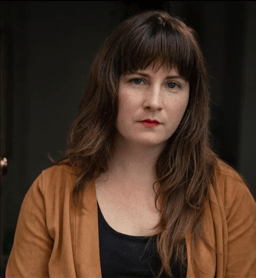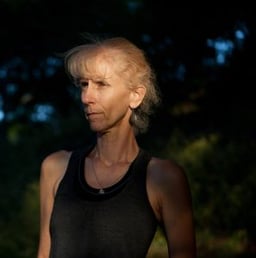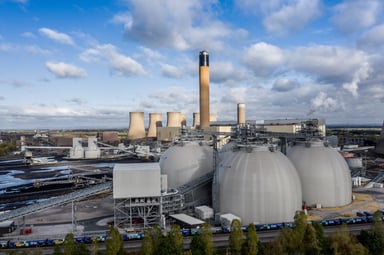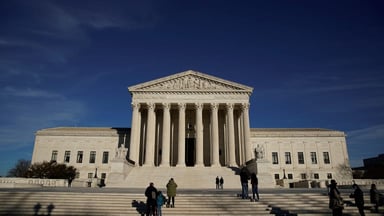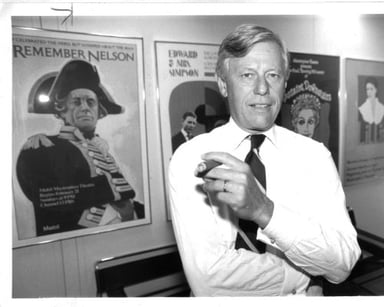About
Around the world, climate and other environmental protestors are being harassed, attacked, and arrested at an increasing rate. Laws are being passed that levy life-altering prison sentences and fines on protestors arrested near anything deemed “critical infrastructure,” which is defined so broadly it’s hard to find a public space that wouldn’t be near it anymore. Corporations are suing protestors and NGOs, comparing protest to organized crime. Governments are growing increasingly comfortable branding environmental protestors as “domestic terrorists” or instruments of “foreign influence,” and going after the nonprofit status of environmental nonprofits. And so far the media is largely participating in the rhetorical “othering” of protestors, opting in most cases to focus on the disruption that protest causes rather than the change it seeks, and to marginalize activists. In this print and audio series we’ll take an in-depth look at how climate protest has evolved in recent years, where this backlash is coming from, how it’s grown so quickly, and what it feels like to be someone who’s concerned enough about the future of humanity to join a protest, only to find themselves facing police violence and several years in jail.
We’ve worked with reporters on almost every continent to cover this trend from as many angles as possible and trace how particular tactics and ideas have spread across borders. The result is more than two dozen print and audio stories that we’ll be releasing over the next several months. The stellar team behind this project includes:
Alleen Brown, Senior Editor: Alleen Brown is an independent investigative journalist. Her reporting on state and corporate repression of Indigenous-led Dakota Access Pipeline opponents at Standing Rock has been cited in civil rights cases, reports submitted to international human rights bodies, and more than a dozen books. Her investigation mapping over 6,500 prisons against heat, wildfire, and flood risk has provided foundational information for organizers and policymakers defining what climate change will mean for mass incarceration. She has reported extensively on the intersections between environmental crises and racism, poverty, immigration, violence against women, and criminalization. She was previously a staff reporter at The Intercept and has written for Grist, The Guardian, Inside Climate News, The Appeal and other publications. Alleen is from St. Paul, Minnesota, and lives in New York.
Fredrick Mugira, Reporter, Uganda Fredrick Mugira is a Ugandan multiple award-winning water and climate change journalist, media trainer and development communication specialist with over 10 years of wide-ranging experience. He has reported from various countries in Africa, Europe, Asia and USA. Fredrick has won various continental and national journalism awards including: the prestigious CNN/Multichoice African Journalist award; the UN Development Journalism Award; the 2018 and 2015 Climate Change Media Partnership (CCMP) fellowships. He was also shortlisted for the Energy/Water journalism Lifetime Achievement award at the Africa Utility awards 2018. He heads Water Journalists Africa, a network of over 700 journalists in 50 African countries who report on water. He cofounded InfoNile, a geojournalism platform mapping data on water issues in the Nile River basin with journalism stories to promote transboundary peace.
Anna Pujol-Mazzini, Reporter, France Anna Pujol-Mazzini is an investigative journalist, podcast producer and fact-checker. She is a former international correspondent for Reuters, AFP and The Daily Telegraph and she specialises in gender, LGBTQIA+ rights and the environment. Her work has been published by The Washington Post, Reuters, TIME Magazine, National Geographic, The Guardian and The Daily Telegraph, among others.
Martha Troian, Reporter, Canada Martha Troian is an award-winning independent journalist and writer. Specializing in investigative journalism, she has worked for and contributed to media outlets across North America for close to 15 years, often writing about Indigenous politics, justice, crime, data deficits, and environmental and human rights issues. She was the McLaughlin Centre Science Journalism fellow with the William Southam Journalism Fellowship at Massey College, University of Toronto for 2019-2020. Previously she was a participant of the Investigative Journalism Intensive Program at Banff Centre for the Arts and Creativity. Currently, she is working as a producer with the Institute for Investigative Journalism probing water contamination and Indigenous communities. She is proudly from Lac Seul First Nation and Wabauskang First Nation in northwestern Ontario, and a mother to her young son.
Geoff Dembicki, Reporter, Canada Geoff Dembicki is an award-winning journalist and author from Alberta, Canada, currently based in Brooklyn. He’s a regular contributor to VICE, DeSmog, The Tyee and his work has also appeared in The New York Times, Foreign Policy and The Guardian. He’s the author of Are We Screwed? How a New Generation is Fighting to Survive Climate Change, which was published internationally by Bloomsbury USA in 2017, and The Petroleum Papers, published by Greystone Books in 2022.
Karen Savage, Reporter, US Karen Savage is an investigative journalist who has covered environmental justice communities extensively and has been reporting on resistance to pipeline construction in Louisiana since 2015. Her work has appeared in Undark Magazine, The Appeal, Project Earth, Juvenile Justice Information Exchange, Bridge the Gulf, Youth Today, Truthout and City Limits. Karen is an alum of the Craig Newmark Graduate School of Journalism, where she teaches environmental reporting.
Ugochi Anyaka-Oluigbo, Reporter, Nigeria Ugochi Anyaka-Oluigbo is an award-winning environmental journalist and the recipient of several journalism awards including the UNEP Young Environmental Journalist 2012, 2019 Green Accord Environmental Award, Italy and UNFCCC CDM-African Radio Contest 2011. She created, produced and presented the most popular environmental show on Nigerian TV, Green Angle on TVC News. I have hosted the BBC World Service's Environmental Radio Programme, Local Warming. Ugochi comes from a community ravaged by erosion - a key factor that inspired her passion to pursue environmental journalism. I am a fellow of the Lancaster University Environment Center – Recirculate Programme. From erosions, flooding and desertification in Nigeria, oil pollution in Ogoniland of the Niger Delta, depleting Africa's last rain forests to frozen lapland, Finland, she has visited rugged terrains to share underreported environmental stories. She currently works as a freelance journalist covering environmental issues across Africa and Europe, and co-hosts Djoliba - a multi language African radio show on RadioX Basel, Switzerland.
Lyndal Rowlands, Reporter, Australia Lyndal Rowlands is a freelance journalist. Her audio journalism can be found on Drilled, Damages, First Eat with Nakkiah Lui: an Audible Original, Life Matters on ABC Radio National and 7am. Her writing has been published by The Saturday Paper, The Guardian, Al Jazeera, The Diplomat, SBS and Inter Press Service, where she was a UN Correspondent. Lyndal’s work has been recognised with a UN Correspondents Association prize for climate journalism, a UN Foundation Press Fellowship and a UnionDocs Pod-Pod residency. She’s a member of the Media, Entertainment & Arts Alliance, The Science Journalist Association of Australia and the Society of Environmental Journalists. She was born in a valley full of brown coal mines and her favourite sound is a magpie warbling.
Rishika Pradikar, Reporter, India Rishika Pardikar is an Indian environmental journalist tracking science, law and policy. Her areas of expertise are climate change and biodiversity, both nationally within India and internationally with a keen focus on negotiations under UNFCCC and UNCBD. Her work has appeared in The Lever/ Jacobin, Foreign Policy, science magazines like AGU's Eos, China Dialogue and Indian media like The Hindu and The Wire. She lives in Bangalore.
Wudan Yan, Fact Checker Wudan is an award-winning narrative journalist, podcast producer, fact-checker, and entrepreneur. She writes about contrarian characters, unlikely connections, creative solutions, slow-moving crises — or any combination of the above. Her work appears in The Atlantic, The California Sunday Magazine, The Guardian, High Country News, Longreads, MIT Technology Review, National Geographic, The New Yorker, New York Magazine, The New York Times, and beyond. Wudan is based in Seattle.
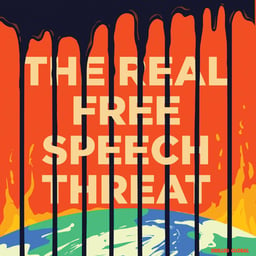

How the U.S. Got the World to View Environmentalists as "Terrorists”
The finale of our Real Free Speech Threat season.
The finale of our Real Free Speech Threat season.


In El Salvador a Cold Case Murder Has Become a Weapon for Silencing Environmental Activists
El Salvador’s dictator Nayib Bukele wants to bring mining back to the first country that ever banned it. But first, he needs to silence the activists who got the ban passed.
El Salvador’s dictator Nayib Bukele wants to bring mining back to the first country that ever banned it. But first, he needs to silence the activists who got the ban passed.


Sainte-Soline, the Government Effort to Disband a Movement in France, and the Radical Solidarity of the Earth Uprisings
Why is the French government so afraid of the climate movement?
Why is the French government so afraid of the climate movement?


Dana R. Fisher on the Past, Present and Future of Climate Protest
The “radical” flank of the climate movement is not that radical, but it’s going to become more so.
The “radical” flank of the climate movement is not that radical, but it’s going to become more so.


Department of Homeland Security, the Manufactured "EcoTerrorist" Panic, and Cop City
The U.S. government's ever-expanding definition of what constitutes an "ecoterrorist” continues to drive repression of protest
The U.S. government's ever-expanding definition of what constitutes an "ecoterrorist” continues to drive repression of protest


Meet the First UN Special Rapporteur on Environmental Defenders
Michel Forst is concerned by the increased use of repressive laws and tactics to silence climate protest.
Michel Forst is concerned by the increased use of repressive laws and tactics to silence climate protest.


S10, Ep15: How UK Courts Became the New Climate Protest Battleground
Since the passage of a new law curtailing protest rights in 2022, the U.K. has been on a rapid path to repression.
Since the passage of a new law curtailing protest rights in 2022, the U.K. has been on a rapid path to repression.


S10, Ep 14: What Happened at Bayou Bridge? The Other End of the Dakota Access Pipeline
While protests against the northern leg of the Dakota Access Pipeline, on the Standing Rock Sioux Indian Reservation, garnered international press attention, protestors in Louisiana, where the southern leg was being built, faced aggressive fossil fuel-funded and state-backed repression, but saw little to no media attention. Their story is a cautionary tale for the climate movement, and anyone concerned about democracy.
While protests against the northern leg of the Dakota Access Pipeline, on the Standing Rock Sioux Indian Reservation, garnered international press attention, protestors in Louisiana, where the southern leg was being built, faced aggressive fossil fuel-funded and state-backed repression, but saw little to no media attention. Their story is a cautionary tale for the climate movement, and anyone concerned about democracy.
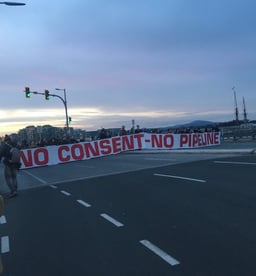

S10, Ep12: Modern-Day Bead Trading: “Redwashing” and Repression in Canada
A look inside the Coastal Gas Link fight in Canada.
A look inside the Coastal Gas Link fight in Canada.





